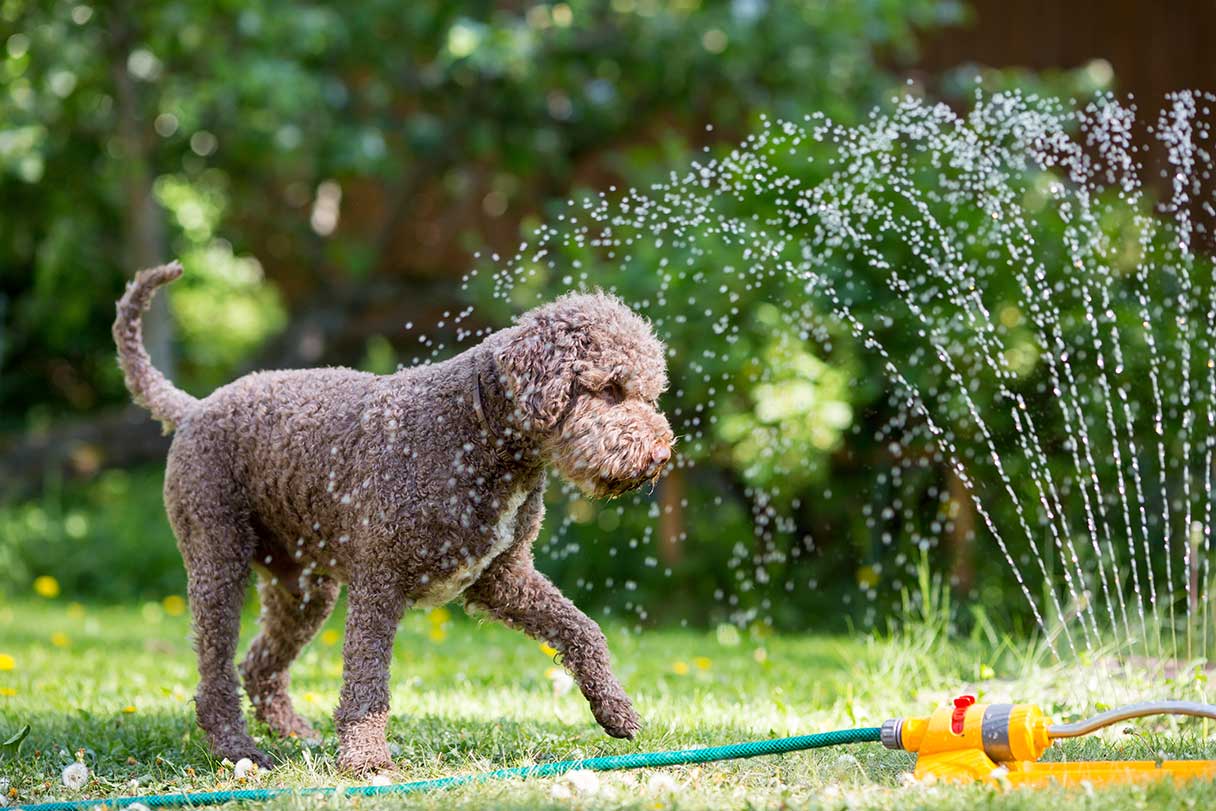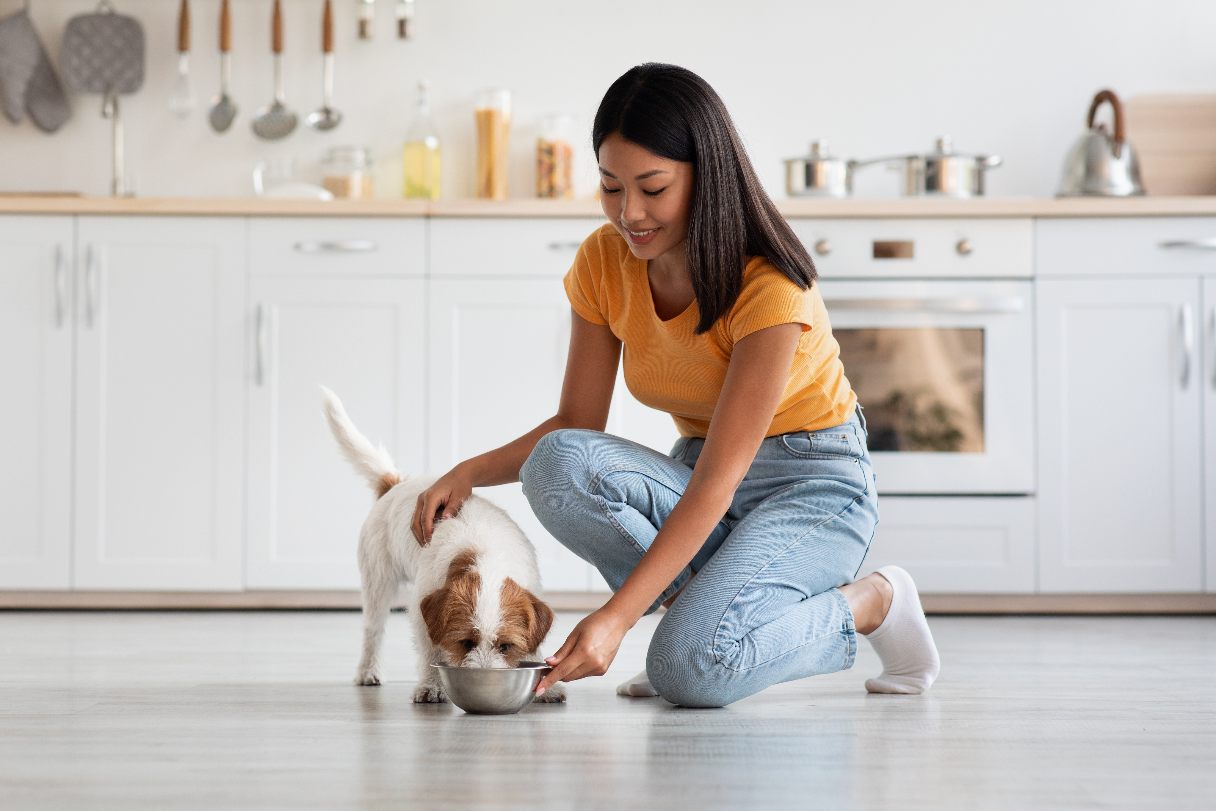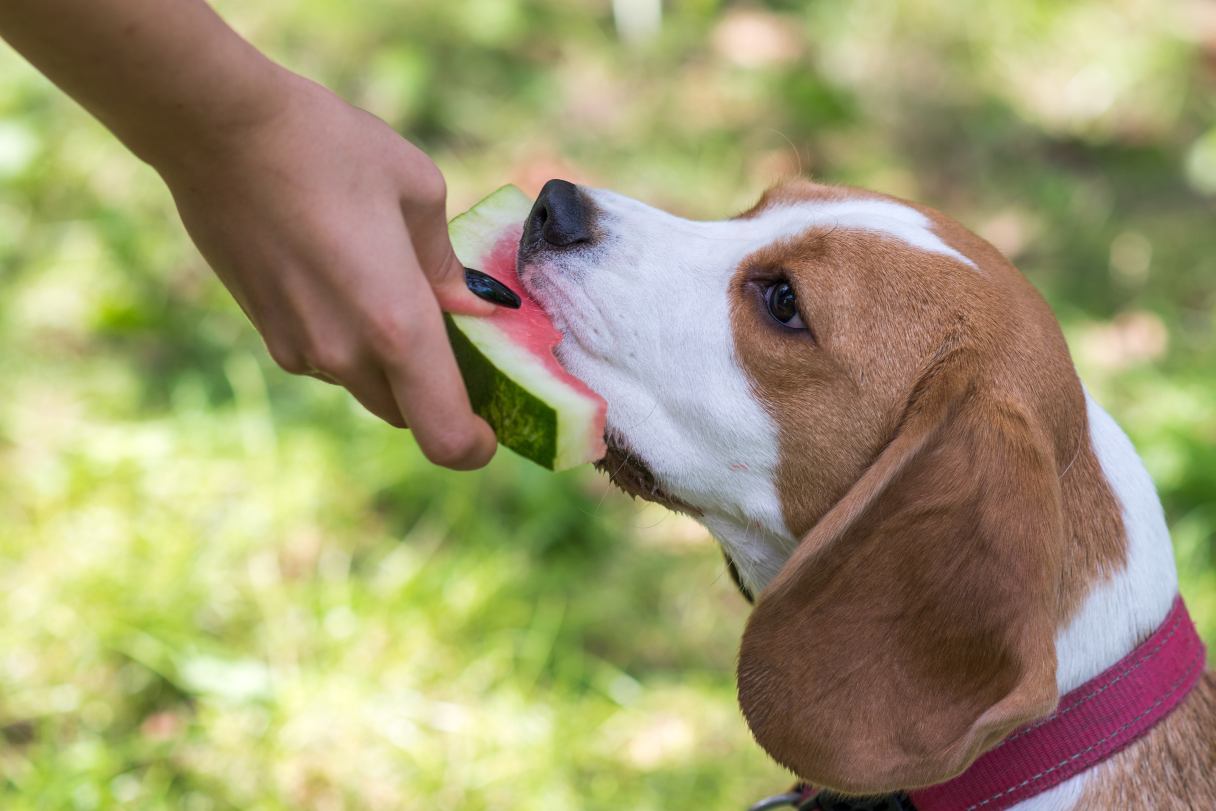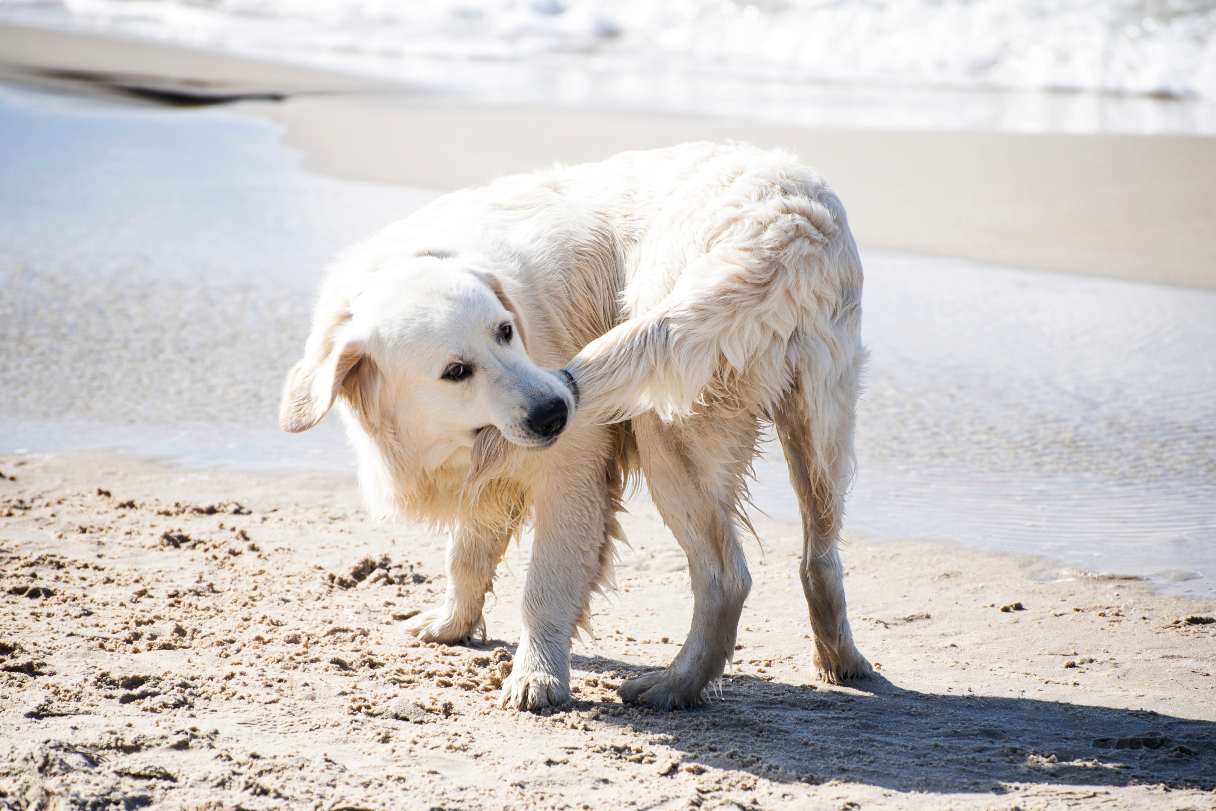Summer is a great time for adventures with your canine pal. Car rides, beach trips, hikes and backyard play can be great fun for people and dogs when the weather warms. But summer sun and heat can also be harmful to pets. Use these tips to help your pup stay cool.
1. Keep Your Dog Hydrated
Whether they are indoors or out, your pup needs unrestricted access to clean, cool water. Bring water with you on walks and hikes, along with a collapsible, travel-friendly bowl. The warmer the temperature, the more water you should bring. Staying hydrated helps keep your dog cool, and providing your own water prevents your pet from drinking unsafe water from puddles, lakes or ponds. At home, you can turn hydration time into treat time by freezing dog-safe fruits into ice cubes to add to your dog's water dish.
2. Provide Shade
Temperatures in the shade can be significantly cooler than those in direct sunlight, providing a much-needed respite from the heat. Place shade structures in your backyard so your dog can self-regulate during play. When you’re out on a walk or hike, stop to rest under trees or shelters. Even with shade, keep play sessions short and bring your dog inside if they start to overheat.
3. Let Your Dog Relax Indoors
Sometimes, staying inside is the best way to protect your pet, especially for dogs sensitive to high temperatures. If your pup is short-nosed (i.e., brachycephalic), older, overweight or suffering from a chronic health condition, avoid going outdoors during the hottest hours of the day. Instead, plan your adventures for early morning or late evening and limit overall outdoor time.
4. Don’t Leave Your Dog in the Car
Temperatures inside a car or other enclosed space can climb quickly, even if you leave the windows cracked. Never leave your dog alone in a parked car, as they can quickly overheat. If your dog can't go inside with you when you reach your destination, it’s best to leave them at home in a comfortable, air-conditioned space and ask a friend, family member or dog walker to care for them while you’re away.
5. Let Your Dog Play in the Water
Swimming and splashing are fun ways to keep your dog cool. Consider a kiddie pool or sprinkler, or simply spray your pet with the hose. If you have access to a larger pool, monitor your pet closely and use a dog-specific life jacket for added safety. Swimming in lakes and ponds is fun — but there are things to be aware of, as some water may contain harmful parasites, bacteria or algae.
6. Schedule a Veterinary Visit
Some pets are more prone to heat-related illness or stress than others. You can determine your pet’s heat sensitivity and exercise tolerance by visiting your veterinarian for a pre-summer checkup. Ask the veterinary team to recommend safe outdoor activities as well as options to keep dogs distracted and busy indoors — games, training or puzzles — when the temperatures rise too high for outdoor fun.
7. Avoid Walking Your Dog on Asphalt
Sun-heated asphalt can burn your pet’s paws. To protect your pup's sensitive paw pads, avoid walking on asphalt during the day and stay out of direct sunlight. Walk on the pavement during cooler hours, before sunrise or after sunset, or plan your walking route through grassy areas instead. Booties can protect your dog’s feet, but choose a breathable set to prevent moisture buildup in the summer heat.
8. Maintain Your Dog’s Coat
A dog’s fur helps regulate temperature, keeping them cool in the summer and warm in the winter. Matting, loose fur and dirt can trap heat in a long or thick-coated breed. Ask your groomer for summer haircut recommendations that suit your dog’s coat type, and bathe and brush your dog frequently at home. Dry your pet well and wipe their ears with a vet-approved solution to prevent infections, and use flea and tick prevention to keep your dog’s skin parasite- and itch-free.
9. Stock up on Cooling Products
Cooling products can help extend the time your pet spends outdoors in the summer heat. An elevated mesh bed, gel mat, cooling vest or bandana, or simply a wet towel can provide refreshing and soothing relief from hot surfaces or air. Additionally, elevated or water-filled beds can keep your dog cool and provide a cushioned place to rest.
10. Know the Symptoms of Heatstroke
Heatstroke is a serious, life-threatening emergency. However, actively keeping your dog cool and watching for early signs of heat stress, such as heavy panting, drooling or lethargy, can help prevent the condition. If you think your dog is overheating, move them into an air-conditioned space immediately. Place them in cool — never cold — water and seek veterinary attention right away if you notice any of the following signs of heatstroke:
- Bloody urine or diarrhea
- Dark red or very pale gums
- Difficulty breathing
- Increased heart rate
Keep Cool in the Summer Heat
Whether you and your dog are romping at the park, exploring the beach, hiking the trails or taking a dip, use these tips to enjoy a safe and fun summer with your best friend. Contact your local veterinarian if you have questions or concerns about canine heat safety.
CareCredit Credit Card Financing for Dogs
The CareCredit credit card provides a convenient way to pay for your dog's vaccinations and other health and wellness expenses, including exams, medications and products at providers in the CareCredit network.* Continue your wellness journey by downloading the CareCredit Mobile App. You can find a provider on the go, manage your CareCredit account and easily access the Well U blog for more great articles, podcasts and videos. Use our Acceptance Locator to find a veterinarian that accepts CareCredit to help keep your pet healthy and happy for a lifetime of love.
In addition to pet care, you can also use your CareCredit credit card for dentistry, cosmetic, vision, hearing, health systems, dermatology, pharmacy purchases, spa treatments and so much more within the CareCredit network. How will you invest in your health and wellness next?
Author Bio
Angela Beal, D.V.M., has more than 20 years of experience as a veterinarian. Leveraging her background in private practice and academia, she uses her passion for writing to convey information to pet owners to help them keep their pets healthy and happy.








